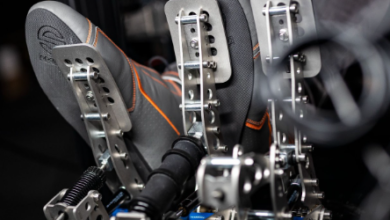What are the new developments in wearable technology, and how are they improving personal health management?

Introduction
Wearable technology has evolved significantly over the past decade, transforming from simple fitness trackers into sophisticated devices capable of comprehensive health monitoring. As technology continues to advance, these devices are playing an increasingly vital role in personal health management, providing users with valuable insights into their well-being. This article delves into the new developments in wearable technology and examines how these innovations are enhancing personal health management.
Latest Innovations in Wearable Technology
Wearable technology has seen a plethora of advancements that make health monitoring more accurate, accessible, and insightful. Here are some of the most notable innovations:
Advanced Sensors and Data Accuracy
Modern wearables are equipped with advanced sensors that offer precise measurements of various health metrics. These sensors can track heart rate variability, oxygen saturation levels, and even detect irregular heartbeats. Improved data accuracy ensures that users receive reliable information, enabling better health management.
Integration of Artificial Intelligence
AI integration in wearable technology allows for real-time data analysis and personalized health insights. Machine learning algorithms can detect patterns in the user’s data, predict potential health issues, and offer tailored recommendations for improvement. This proactive approach helps in the early detection of health problems and promotes preventive care.
Smart Fabrics and E-Textiles
Innovative smart fabrics and e-textiles are being incorporated into wearables, making them more comfortable and versatile. These materials can monitor various health parameters without the need for bulky devices, paving the way for clothing that can track and manage health metrics seamlessly.
Wearable Devices for Chronic Disease Management
Wearable technology is particularly beneficial for individuals with chronic diseases. Devices like continuous glucose monitors (CGMs) for diabetics and wearable ECG monitors for heart patients provide real-time data, helping users manage their conditions more effectively and reduce the risk of complications.
Health and Fitness Wearables
Health and fitness wearables have become more sophisticated, offering comprehensive tracking of physical activities, sleep patterns, and nutrition. These devices provide users with detailed insights into their lifestyle habits, encouraging healthier choices and promoting overall well-being.
Mental Health Monitoring
Recent advancements have led to the development of wearables that monitor mental health indicators such as stress levels and sleep quality. By analyzing physiological data, these devices can alert users to potential mental health issues and suggest relaxation techniques or lifestyle changes to improve mental well-being.
Remote Health Monitoring
Wearable technology facilitates remote health monitoring, allowing healthcare providers to track patients’ health metrics from a distance. This capability is particularly valuable for elderly individuals and those with mobility issues, ensuring they receive timely care and reducing the need for frequent hospital visits.
Improved Battery Life and Device Durability
Advancements in battery technology have significantly extended the battery life of wearables, making them more convenient for long-term use. Additionally, these devices are becoming more durable and resistant to water and physical damage, enhancing their usability in various environments.
Enhanced User Experience
The user experience of wearables has improved with better interfaces, intuitive designs, and seamless integration with smartphones and other devices. These enhancements make it easier for users to access and interpret their health data, fostering greater engagement with their health management routines.
Customizable Health Tracking
Wearables now offer customizable health tracking options, allowing users to select which metrics they want to monitor based on their individual health goals. This personalization ensures that the data collected is relevant and actionable for each user.
Wearable Technology and Personal Health Management
The impact of wearable technology on personal health management is profound. Here’s how these advancements are making a difference:
Real-Time Health Monitoring
Wearables provide real-time monitoring of various health parameters, enabling users to stay informed about their health status at all times. This continuous monitoring helps in the early detection of anomalies and allows for immediate action to be taken when necessary.




